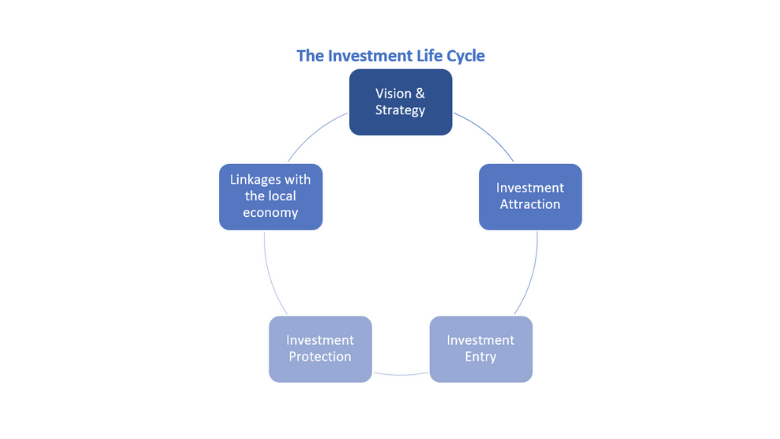[ad_1]
Nigeria’s once-thriving palm oil industry is often cited as one of the most miserably failed economic opportunities in Africa.
Use of the oil palm fruit to extract edible oil has been in practice across the continent for centuries, and it remains an essential ingredient in much of West African cuisine. Farmers in the region, who inter-cropped palm oil with other food crops like yam and maize, started the first export trade early in the nineteenth century. Before its close, the industrial revolution in Britain had created a huge demand for palm oil, which by then had found its way to use in candle making and as an industrial lubricant. The economic importance of palm oil grew steadily because of its high yield, leading European colonists to start plantations in Central Africa by 1900. As palm oil found wider use in food-processing and industry, global demand for the commodity surged. By 1982, worldwide palm oil exports had grown to a staggering 2,400,000 million tonnes per annum1.
For most of this period, Nigeria held centre stage as one of the largest producers and exporters of palm oil, accounting for more than 40% of global output in the 1950s. At the time of the country’s independence from British colonial rule in 1960, palm oil contributed 82% of national export revenue. However, the oil boom of the mid-seventies and the subsequent decline of farming proved catastrophic to the sector. By the end of the twentieth century, the Nigerian palm oil harvest had dwindled to just 7% of global production. More embarrassingly, the once-largest exporter had turned into a net importer of palm oil, sourcing 180,000 MT of the commodity from international markets to meet local demand2.
The fundamental flaw with the palm oil sector lies in Nigeria’s colonial origins, when British trade necessities dictated economic policy. Because of its primary export orientation at that time, planned expansion of the industry was slow in coming through and its future competitiveness had been compromised. As a result, the bulk of Nigerian palm oil comes from dispersed and semi-wild groves, and through the use of highly outdated manual processing techniques. Several attempts to establish large-scale plantations since the 1960s – including the Cross River State plan and the Oil Palm Belt Rural Development Programme – ended in miserable failure. Currently, 80% of production comes from scattered smallholdings spread over an estimated 1.6 million hectares of land. In contrast, plantations occupy only about 300,000 hectares – most of it coming up over the last decade with private sector investment.
Economic reforms initiated since the reinstatement of democracy in 1999 succeeded somewhat in nudging the sector out of stagnation. Between 2001 and 2005, palm oil production grew rapidly from 760 MT to 800 MT, while recording a corresponding rise in local consumption. Much of this movement can be owed to a ban that Nigeria imposed in 2002 on the import of palm oil and related products. However, the government of Late President UM Yar’Adua reversed the ban in January this year, prompting grave misgivings about the fate of the industry and impact on local production. The Plantation Owners Forum has gone so far as to say the move would severely threaten Nigeria’s Vision 2020 goals for accelerated economic development. Inconsistent policies like this are largely to blame for the fact that Nigeria’s palm oil industry continues to flounder despite the marked resurgence of agriculture through the last decade.
Palm oil owes its significance in the Nigerian scheme of things to several reasons. Besides conventional uses in food-processing, every part of the tree has economic value that can be employed in a variety of low-cost activities like roofing and wickerwork. Moreover, palm oil is a source of raw material for a whole range of industries; for instance, those involved in the manufacture of detergents, pomades, confectionary fat and margarine. By virtue of this alone it offers massive scope for employment generation and income distribution, to say nothing of other diversified products like palm kernel oil. The industry has therefore been widely regarded as a high-growth business by the private sector. In countries like Malaysia and Indonesia, which together account for 90% of current global exports, palm oil has proved to be a cornerstone of industrial growth.
For Nigeria, this dynamic crop represents an economic asset of incredible potential. It also represents huge opportunities for rapid SME development as a means to economic diversification, poverty alleviation and employment generation. The palm oil industry is unquestionably vital in Nigeria’s plans for accelerated growth and the establishment of a sustainable and closely interdependent economy. Reinvigorating the industry can very well spark off the enterprise revolution that the country need to turn its fortunes around. Government intervention in this sector must hence be guided by a number of critical considerations:
* Maximising productivity in existing plantations so that scattered smallholdings can be converted into viable agricultural ecosystems.
* Minimising cost of production by developing high-yield varieties and improving efficiency in basic processing and refining activities.
* Creating effective backward and forward linkages for palm oil production and processing activities with focus on the larger domestic economy.
* Directing investment at marginal farmers and cooperatives that rely on wild groves or practice mixed farming on small plantations.
* Facilitating research and development, promoting public-private joint ventures and encouraging foreign investment with tax breaks and financial incentives.
* Revamping distribution and marketing networks to export-orientated standards; entering bilateral counter-trade agreements to avoid high tariffs and import restrictions.
* Ensuring compliance with international regulations on safety and quality of palm oil and processed products through wider use of technology.
* Implementing policies to address negative social development issues; for instance, promoting backward migration from urban areas to plantations.
In 2008, the United Nations Organisation for Industrial Development (UNIDO) launched a $5 million programme to boost sustainable production of palm oil in Nigeria and Cameroon. Although relatively small in terms of initial outlay, the project aims to train farmers on more efficient methods of production and processing. Conservative estimates by UNIDO say at least a thousand news jobs will be created by the end of the four-year project.
Considering the extent of its resources and human capital, Nigeria stands to reap much larger economic benefits from an optimally-expanded palm oil industry. Before that happens, however, the government must realise that where overdependence on fossil fuels caused most of Nigeria’s woes, another kind of oil holds the cure!
[ad_2]
Source by Peter O Osalor



















